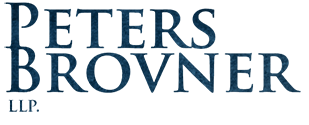New York Child Victims Act Attorneys
Peters Brovner is a boutique law firm that represents survivors of sexual abuse and assault, including victims of child sexual abuse. The firm has recovered millions of dollars in monetary compensation for survivors of sexual abuse and assault.
What is the Child Victims Act?
In February 2019, New York State passed a “lookback window,” the Child Victims Act (CVA), extending the statute of limitations for survivors of child sexual abuse in criminal and civil cases in New York.
Previously, in most criminal cases, the statute of limitations for felony offenses ended when the survivor turned 23; now, the CVA increases the statute of limitations until the survivor turns 28. For misdemeanor offenses, the statute of limitations had ended when the survivor turned 20 but has now been increased to 25 years of age.
In civil cases, prior to the CVA, the victims of child sexual abuse had only a short window of years, after turning 18, to bring a civil lawsuit against their abuser. The CVA created a “lookback window” allowing a child victim of sexual abuse whose claim was previously time-barred to bring an action up until August 14, 2020. That window was later extended to August 14, 2021. For most claims that have not yet expired, the survivor now has until they turn 55 to file a claim.
Under New York’s Child Victim’s Act, survivors could file civil claims against both private and public institutions including claims for negligence by the institution that allowed the abuse to occur.
The Child Victims Act allowed survivors of sexual abuse to hold powerful institutions liable for abuse that those institutions had tolerated for years. It helped more than 10,000 survivors bring civil lawsuits and seek justice for the wrongs committed against them.
Common Examples of Sexual Abuse and Assault
With regards to sexual assault, it’s important to remember that the incident is never the victim’s fault. If force or coercion are used and/or the actions are nonconsensual – not wanted or agreed to – an assault occurred.
Types of sexual assault include any unwanted sexual activity, including:
- attempted rape
- fondling
- sexual contact or touching
- forcing the victim to perform sexual acts
- rape: unlawful sexual intercourse or penetration of the victim’s body by a body part or object
Employers or other officials with oversight responsibilities who attempt to hide the sexual abuse from the authorities or who remain willfully blind to assaults of people in their care can be held liable in civil proceedings.
Who Can Be Held Responsible
Both individuals and institutions that fail to protect the children in their care can be held to account for child sexual abuse. Defendants in sexual abuse and assault cases can include:
- Schools (private and public, including school districts)
- Religious Organizations (e.g. the Archdiocese of New York, Catholic Church etc.)
- Recreational Organizations, (g. the Boy Scouts of America)
- Volunteer Organizations
- Hospitals & Nursing Homes
Criminal Penalties for Offenders
There are a variety of penalties for sexual assault and abuse, depending on the offense charged. There are various crimes, listed in Article 130 of the New York State Penal Code, which could be charged in these cases. These include, among other offenses:
- Rape, including Rape in the Second Degree, which is a Class D Felony and consists of “sexual intercourse with another person: (1) being eighteen years old or more, he or she engages in sexual intercourse with another person less than fifteen years old; or (2) engaging in sexual intercourse with another person who is incapable of consent by reason of being mentally disabled or mentally incapacitated. See Penal Code 130.30. Rape in the second degree is a class D felony.
- Sexual abuse in the first degree which is a Class D Felony and occurs when someone subjects another person to sexual contact: (1) By forcible compulsion; or (2) When the other person is incapable of consent by reason of being physically helpless; or (3) When the other person is less than eleven years old; or (4) When the other person is less than thirteen years old and the actor is twenty-one years old or older. See Penal Code S 130.65
- Forcible Touching, which is a class A misdemeanor and consists of, among other things, “when [a] person intentionally, and for no legitimate purpose…forcibly touches the sexual or other intimate parts of another person for the purpose of degrading or abusing such person or for the purpose of gratifying the actor’s sexual desire….” See Penal Code 130.52
Compensation Survivors May Receive
Survivors who successfully sue institutions or individuals for sexual assault or abuse are entitled to receive monetary damages and compensation. The amount of such compensation depends upon a variety of factors, including the specific acts involved, the harm, including psychological harm, to the victim and the strength of the evidence that an assault occurred.
Contacting an Experienced NYC Attorney
The sexual abuse attorneys at the law offices of Peters Brovner LLP focus on holding City, State and private institutions accountable for actions that result in significant harm and personal injury, including failure to protect individuals from child sexual abuse. If you or someone you know is a survivor of child sexual abuse or assault and you need legal advice, please reach out to the lawyers at Peters Brovner LLP for a free consultation.
Prior results do not guarantee a similar outcome.
